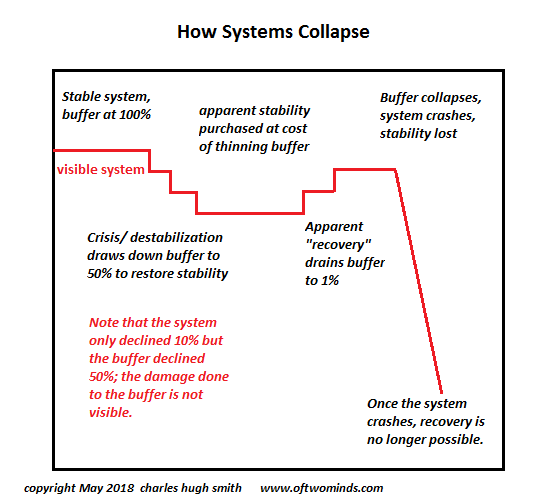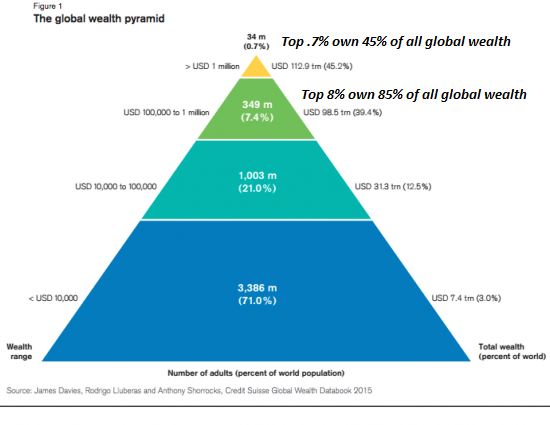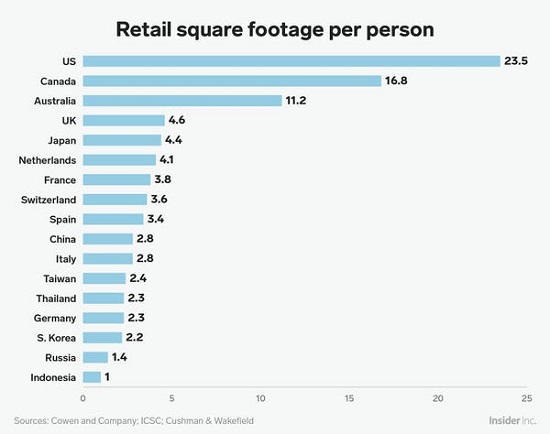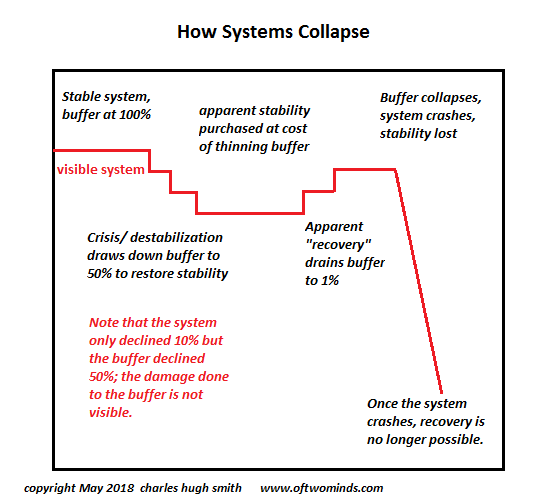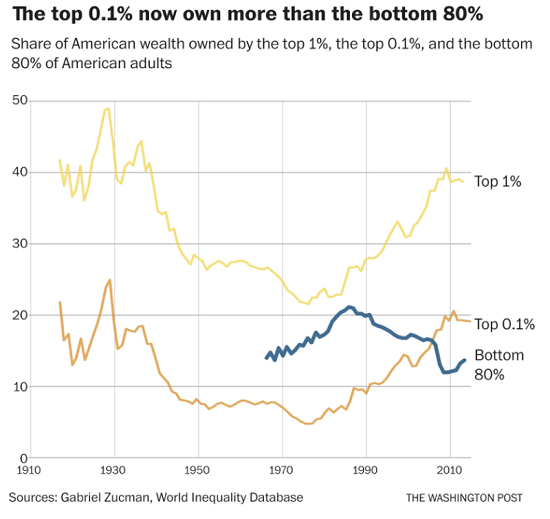Don’t expect healthcare or any other hollowed-out, heavily optimized system to function as it once did. A great many Americans will be shocked when our healthcare systems start failing because they believed the PR that “we have the finest healthcare system in the world.” The ability to deliver the finest care to a few does not translate into an ability to deliver the finest care to the many, nor does it mean the system is robust enough to withstand a tsunami. As I have endeavored to explain in recent posts, systems optimized for narrow envelopes fail when they slip outside that envelope. One analogy is an airliner that is optimized in terms of fuel efficiency to fly above 30,000 feet at around 540 miles per hour. The optimized envelope allows for somewhat
Topics:
Charles Hugh Smith considers the following as important: 5.) Charles Hugh Smith, 5) Global Macro, Featured, newsletter
This could be interesting, too:
Nachrichten Ticker - www.finanzen.ch writes Die Performance der Kryptowährungen in KW 9: Das hat sich bei Bitcoin, Ether & Co. getan
Nachrichten Ticker - www.finanzen.ch writes Wer verbirgt sich hinter der Ethereum-Technologie?
Martin Hartmann writes Eine Analyse nach den Lehren von Milton Friedman
Marc Chandler writes March 2025 Monthly
|
Don’t expect healthcare or any other hollowed-out, heavily optimized system to function as it once did. A great many Americans will be shocked when our healthcare systems start failing because they believed the PR that “we have the finest healthcare system in the world.” The ability to deliver the finest care to a few does not translate into an ability to deliver the finest care to the many, nor does it mean the system is robust enough to withstand a tsunami. As I have endeavored to explain in recent posts, systems optimized for narrow envelopes fail when they slip outside that envelope. One analogy is an airliner that is optimized in terms of fuel efficiency to fly above 30,000 feet at around 540 miles per hour. The optimized envelope allows for somewhat higher and lower flight paths, but if the airliner is forced to fly at 500 feet, it will no longer have the range it had at 30,000 feet. America’s healthcare system is optimized for treating a relative handful of severely ill patients. As costs (and profit margins) have soared, the system has been stripped of hospital beds, extra supplies, etc. because these hurt the all-important bottom line: why maintain redundancies and buffers when all that matters in America is “maximizing shareholder value”? |
In the pathological pursuit of “maximizing shareholder value,” Corporate America’s healthcare complex tossed community service and employees overboard. Sure, there is endless glossy (i.e. expensive) PR glorifying the corporate simulacrum of “community service,” but everyone knows it’s just PR: if a hospital fails to produce the profits demanded by corporate HQ, it’s closed, regardless of the negative impacts on the community.
Sorry, folks, it’s just business. When the “store” is no longer sufficiently profitable, it’s closed, just like Walmart closes underperforming stores.
The same sanitized, bloodless pursuit of maximizing profits (kneel before the mighty god we worship, Shareholder Value!) has stripped away the pretense that healthcare corporations care about their employees. Yes, the glossy PR about how much Corporate America cares about its communities and employees is endless, but it’s all artifice: employees are treated just like factory workers in developing-world sweatshops.
Everyone is expendable, replaceable, just another cog in the machine, and woe to any employee in Corporate America’s healthcare complex who runs afoul of the endless compliance and regulatory reporting.
We’re about to reap what we’ve sown in worshipping “shareholder value” and stripmining communities and employees. The people in the sweatshop get it: we don’t count, we’re just here to make some rich people even richer.
The healthcare sweatshop workers will repay the absence of employer loyalty in kind: you had no loyalty to us, we have no loyalty to you.
When the tsunami wave hits, do you sacrifice yourself to save someone else, or do you conclude the better strategy is save yourself first? As I noted in This Is How It Ends: All That Is Solid Melts Into Air (September 10, 2020): The most competent will realise the impossibility of keeping it glued together and so they will exit first. The most noble will try to keep it going but they will burn out and drop away, leaving the incompetent to oversee the final collapse.
System after system has been optimized to only function in a narrow envelope. Once it slips outside that envelope, it unravels very quickly and then collapses. Those outside the system are bamboozled by the hype and PR and recency bias (“but it worked fine last year”), insiders know better.
Many will try to keep it all glued together for the sake of the patients, but the tsunami will be so relentless that saving themselves will eventually take priority. After all, the “shareholder value / compliance is all that matters” system never cared about you; why should you sacrifice yourself so the executives can keep their multi-million dollar bonuses?
All you cared about were profits–well go right ahead and keep all the profits. We’re gone.
Don’t expect healthcare or any other hollowed-out, heavily optimized system to function as it once did. The fuel tanks are almost empty and we’re still 1,000 miles from land.
COVID-19: Associated Hospitalizations Among Health Care Personnel (CDC)
Tags: Featured,newsletter

